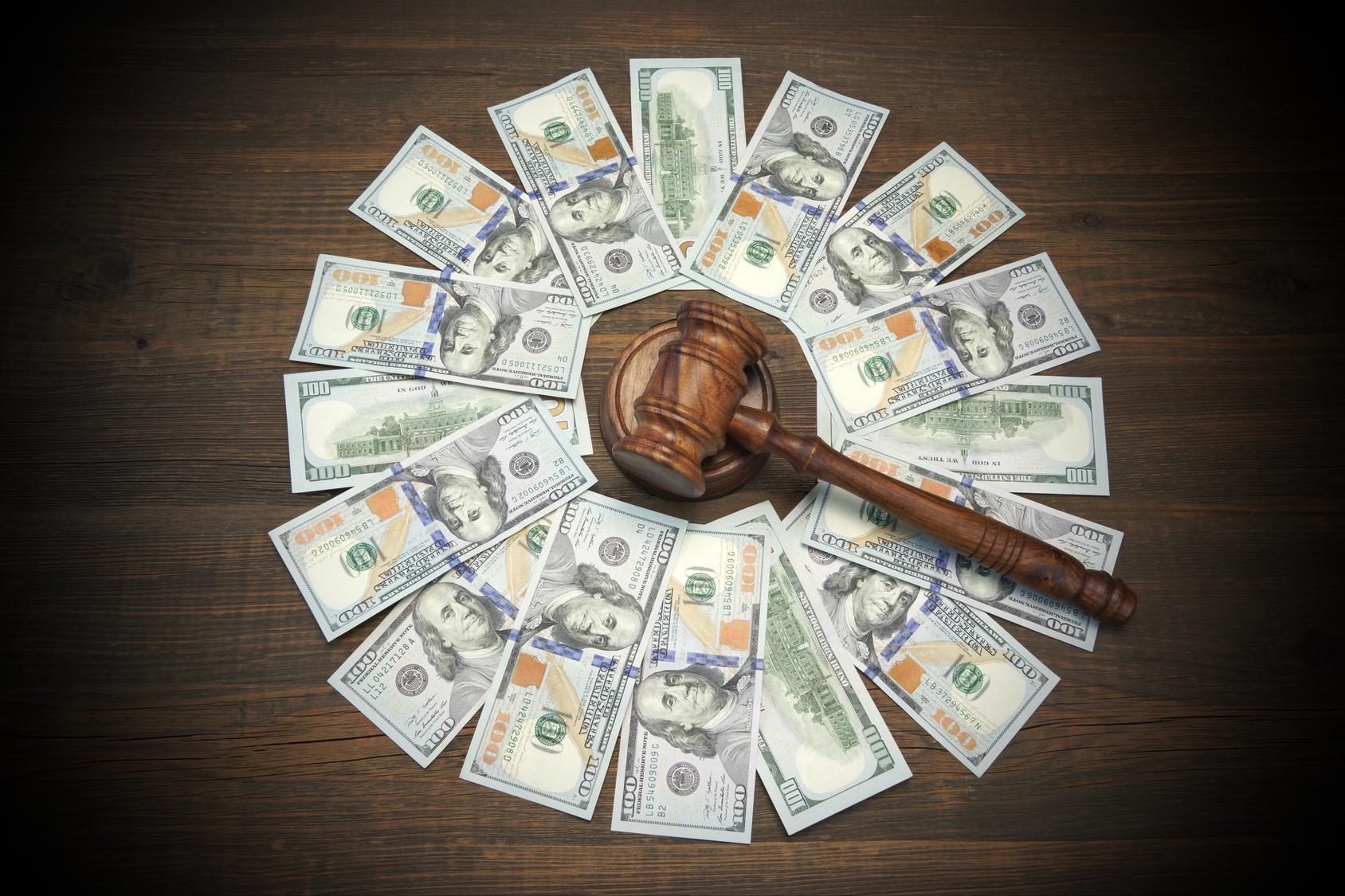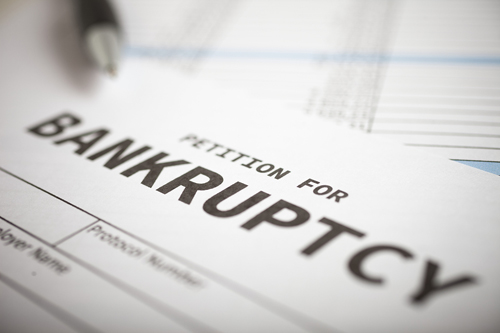Can You File Bankruptcy in Pennsylvania with No Assets?
A no-asset bankruptcy is only available through a Chapter 7 filing – the kind that usually requires the liquidation of your non-exempt property by the court.
To avoid a sell-off for your cherished possessions to pay your creditors, every state in the country allows varying amounts of exclusions, including values for your primary residence, business equipment, and your car, to protect them from an auction. A “no asset” filing maximizes these exceptions.
If you are considering filing for bankruptcy with no assets, our Pennsylvania bankruptcy lawyers can help you determine what options are available in your case. Contact Young, Marr, Mallis & Deane at (215) 701-6519 for a free review of your case.
What is No Asset Bankruptcy?
When the chapter 7 trustee placed in charge of your assets by the court identifies that you have no vulnerable assets, they file “no asset” documentation. This means the state’s allowable exemptions cover the value of your real property and leave none left over for your creditors to receive. The trustee cannot auction off your exempt property, which means your creditors having debts discharged in your bankruptcy receive no money. The court washes the debt away, and you pay the creditors zero.
From the moment you file for bankruptcy, your property is no longer “yours” in the legal sense. Ownership of your assets transfers, temporarily, to the impartial trustee appointed by the court to oversee liquidation, if any occurs.
Just because you’re appealing to the court because your debts grossly outweigh your income does not mean you should have all your property stripped like a fire sale for a cash-strapped NFL franchise. You need certain amenities to continue living, from your clothes to a car so you can continue getting to work. Bankruptcy means a fresh financial start, not a deeper hole from which you must dig out of on your own.
Common Reasons People File for Chapter 7 No Asset Bankruptcy
No two bankruptcy cases are alike, as each is impacted by the particular circumstances of the filer’s case. However, many common reasons make people decide to file for Chapter 7 bankruptcy. In many cases, individuals face economic situations that are beyond their control and need relief. Regardless of the reasons for your financial troubles, our Philadelphia bankruptcy attorneys can help you prepare your claim and walk you through the many pitfalls on the way to financial security.
Medical Expenses
One of the most common reasons for filing a no-asset bankruptcy is that your medical bills have grown beyond your control. Following the Covid-19 pandemic, many families face financial ruin from unpaid medical expenses. Ours and our family’s health is necessary and cannot be negotiated. As such, many individuals rely on credit cards or other forms of debt to cover their mounting medical costs. Unfortunately, these situations are often compounded by even more income being lost from time missed at work.
Lost Wages
Missing time from work because of illness or injury or losing one’s job can also lead to filing for Chapter 7 bankruptcy. Unfortunately, bills and rent do not stop just because a person loses their job. Finding employment in this job market can be incredibly difficult, especially if you are dealing with medical issues and increasing financial burdens.
Illness
Illness is also a common cause for filing for Chapter 7 bankruptcy. As mentioned, illness is something that we rarely have much control over but can wreak havoc on our lives. Some illnesses require significant treatment and hospital stays. Even one night spent at a hospital could overwhelm the finances of a sick individual. While you might not have much control over your illness, our bankruptcy attorneys can help you take control of your financial destiny.
Divorce
Lastly, a divorce or separation from a spouse might also lead to filing for bankruptcy. Sometimes, the economic stress that leads to a bankruptcy filing causes the relationship to break. In other cases, the costs of the divorce itself might send one party into financial straits, which might only be relieved by filing for Chapter 7 bankruptcy. Our Abington bankruptcy attorneys can review your case to determine the best path to secure your financial future.
What Debts Are Not Discharged in Chapter 7 Bankruptcy?
The court only expunges unsecured debts in Chapter 7 bankruptcy – all others survive the process. Secured creditors, including your mortgage company and student loan companies, still retain their accounts and may pursue you for the amounts owed once you emerge from bankruptcy. That includes any repossession actions, including foreclosure. You’re not completely out of the fiscal woods with your no-asset filing, though removing all of your unsecured creditors – credit card companies, medical bills – from the mix should make it easier to pay your mortgage if you have one.
Consider filing for Chapter 7 bankruptcy as a last resort. In many cases, attorneys working on your behalf can negotiate with creditors to settle your accounts for smaller amounts than you owe and avoid the courtroom. The threat of your filing (and receiving nothing for the debt owed) may also make your creditors more willing to listen to proposed payment plans.
Can I File for Chapter 7 Bankruptcy Again After Receiving a Discharge?
Chapter 7 bankruptcy helps you discharge your outstanding debts, but what happens if you find yourself in a situation where you need to file for Chapter 7 bankruptcy again? While your Chapter 7 bankruptcy will discharge your debts relatively quickly, restrictions will be placed on your right to file subsequent bankruptcy claims if you were granted a discharge in your first Chapter 7 bankruptcy case.
Filing Chapter 7 Bankruptcy After a Discharge in a Chapter 7 Case
If you filed for Chapter 7 bankruptcy and were granted a discharge of your debts, you will not be able to file for Chapter 7 bankruptcy again for at least eight years from the date of your first bankruptcy filing. This means that any debts you incur between your original filing and its eighth anniversary will be yours to deal with.
In some cases, an individual might not be sure if they received a discharge in their previous Chapter 7 bankruptcy case. If the court did not discharge your debts in your first filing or your case was dismissed without prejudice, you can file for Chapter 7 bankruptcy without waiting eight years to refile. Our bankruptcy attorneys can use your information to investigate whether you received a discharge previously and what options are available in your new bankruptcy claim.
Filing Chapter 7 Bankruptcy After a Discharge in a Chapter 13 Case
In some circumstances, an individual might need to file for Chapter 7 bankruptcy after receiving a discharge in a Chapter 13 bankruptcy case. Chapter 13 bankruptcy is intended for individuals with assets they do not want to lose, so they go on a repayment plan rather than liquidating their property under Chapter 7 bankruptcy. If you now need to file for Chapter 7 bankruptcy after a Chapter 13 discharge, you must wait six years from the date of your Chapter 13 filing before filing for Chapter 7 bankruptcy. However, if you repaid your creditors in full or the court determines that you paid at least 70% of your debt in good faith, you will not need to wait six years but can file for Chapter 7 bankruptcy immediately. Our York County bankruptcy attorneys can help you determine the best ways to get back on solid financial footing if you have past bankruptcy cases.
Are There Exemptions for Property I Own If I File for Chapter 7 Bankruptcy?
The purpose of bankruptcy is to give people a chance to get back on their feet after significant financial trouble. It would make little sense to leave filers completely destitute by selling off every asset they own and expect this to lead to financial security. Thus, both Pennsylvania and the federal government offer exemptions for certain types of property. However, you can only choose one set of exemptions to apply. Our bankruptcy attorneys can review your case to see what set of exemptions would benefit your case the most.
Pennsylvania Bankruptcy Exemptions
Pennsylvania bankruptcy exemptions are not the most robust in the country. For starters, Pennsylvania does not offer a homestead exemption to protect a filer’s home. Instead, Pennsylvania uses a “tenants by the entirety” rule. This really only protects homes for married individuals since creditors cannot go after a couple’s home if a substantial amount of the debt being discharged is only in one spouse’s name.
Cars and other motor vehicles are also not protected under Pennsylvania’s exemptions. If there are liens on your vehicles, they will likely be liquidated to satisfy your debts. While there is some protection for retirement funds and welfare benefits, these too will be likely targets under the Pennsylvania exemptions. In most cases, our Upper Darby bankruptcy attorneys will look to the federal exemptions to protect our clients.
Federal Bankruptcy Exemptions
The federal exemptions tend to provide more protection to those filing for bankruptcy than the Pennsylvania ones do. The following list provides the amount of money exempt for a particular financial asset:
- Homestead: $25,150
- Motor vehicles: $4,000
- Jewelry: $1,700
- Wrongful death compensation: no limit
- Personal injury compensation: $25,150, not including pain and suffering damages
- Tools of the trade: $2,525
- Life insurance policy: $13,400
- Alimony or child support: no limit
- Roth IRA: $1,362,800
- Health aids: no limit
- Household items and furniture: $625 per item
Keep in mind that if you are married, the total exemptions listed above are doubled. Our bankruptcy attorneys can help ensure that the right set of exemptions is applied to your case.
Our Pennsylvania Bankruptcy Lawyers Can Help
If you find yourself in financial distress, our Bucks County bankruptcy attorneys can provide the sound legal advice you deserve. For a free assessment of your case, call Young, Marr, Mallis & Deane today at (215) 701-6519.






























